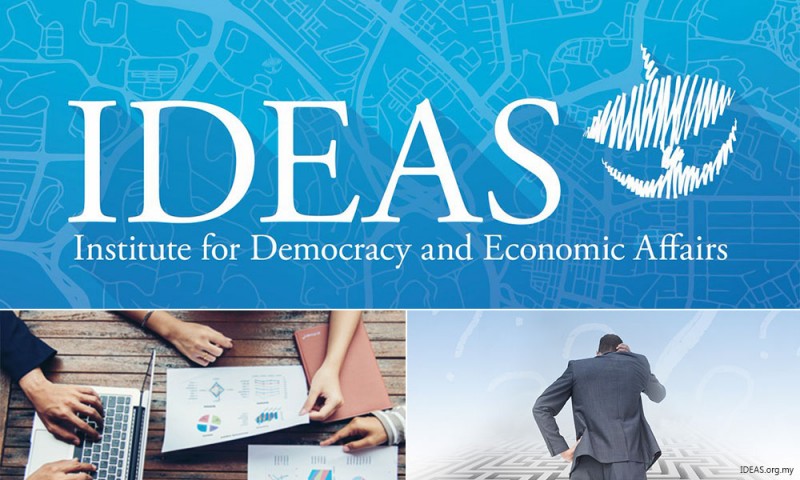
KUALA LUMPUR (Feb 15): The government must strengthen its recovery strategy to defeat the pandemic and support households and businesses, after reporting a worse-than-expected economic contraction in 2020, a think tank said today.
The Institute for Democracy and Economic Affairs (IDEAS) said the latest gross domestic product (GDP) figures do not come as a surprise but do underline the scale of the challenge that confronts the Malaysian economy in 2021.
"To navigate the challenges ahead, we need to improve in three areas: Firstly, we need greater clarity and consistency in the fight against the pandemic," said IDEAS chief executive officer Tricia Yeoh.
"Second, we need to learn the lessons of the last year to provide the support which businesses and households need. Third, we need to prepare a recovery strategy that strengthens economic resilience particularly for Malaysia's SMEs (small and medium enterprises)," she said in a statement.
On Thursday, Bank Negara Malaysia said Malaysia's GDP shrank further in the fourth quarter of 2020, registering a contraction of 3.4% compared with a decline of 2.7% in a year earlier. For the full year, the GDP contracted by 5.6% — the biggest decline since 7.4% in 1998 — which is more severe than the Ministry of Finance's projection of a 3.5% to 5.5% contraction for 2020.
To strengthen Malaysia's efforts to combat the pandemic, Yeoh said Putrajaya should provide clarity over the next six to 12 months over what public health data points are used to decide on either tighter or looser rules.
She added the government should adopt a pandemic management scale, where it uses a tiered approach in the levels of restrictions it decides to implement.
"The government should adopt a pandemic management scale, meaning a tiered approach in the levels of restrictions it decides to implement. It should consider a Pandemic Severity Index as proposed by the Center for Disease Control (CDC), or a set of KPIs (key performance indicators) to measure the pandemic severity as previously proposed by Dr Khor Swee Kheng of the Malaysian Health Coalition," said Yeoh.
In order to support households and businesses, IDEAS said the government should learn from the experience of last year to improve social protection and support to businesses.
"The Covid-19 pandemic has highlighted gaps in our predominantly employment-based, social protection system. We need to improve social assistance programmes' coverage and adequacy to ensure that other vulnerable non-working groups are sufficiently protected.
"Specifically, the government should investigate the factors that lead to the low take-up rate of EPF's i-Saraan Scheme and SOCSO's Self-Employment Social Security Scheme by informal workers and create appropriate incentives for them to contribute voluntarily to these schemes," said Yeoh.
The government, she said, should also expand internet connectivity to cover both urban and rural areas to ensure digital inclusivity, she added, with digitalisation at the heart of the long-term strategy to support SMEs.
"Many SMEs have yet to digitalise their business activity and this has created additional challenges in the wake of the pandemic. In response, the government needs to widen the scope of upscaling grants to include utility innovations, as well as reforming TVET and upskilling courses to create industry-ready graduates and increase the digital literacy of Malaysians.
"To complement this effort, we also recommend developing SME-research institute partnerships to develop a vibrant sectoral research and development and innovation system. The commercialisation of research outcomes will create new and sustainable sources of SME competitiveness," added Yeoh.
Source : https://www.theedgemarkets.com/article/boost-recovery-strategy-support-economic-rebound-ideas-tells-govt

